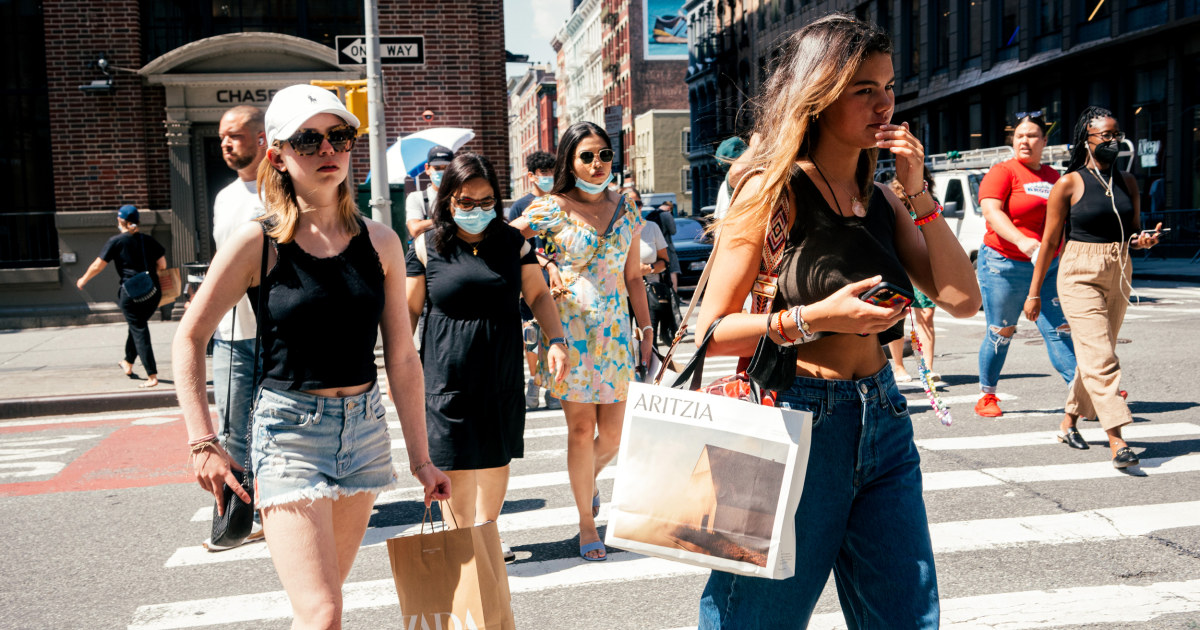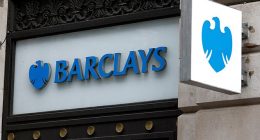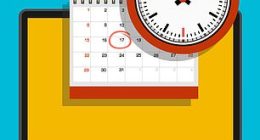
Consumers are feeling more skittish about their spending, with new data on consumer sentiment reflecting “the least favorable economic prospects in more than a decade,” according to the University of Michigan’s August survey, which recorded one of the sharpest ever plunges in the survey’s history.
The headline index figure of 70.3 reflected a 13.4 percent drop from the previous month, down 5.1 percent from a year earlier.
“It wasn’t a total surprise, but… we think it primarily reflects the reality setting in that the pandemic is not, in fact, over, and there’s significant uncertainty regarding where things are going from here,” said Garrett Nelson, senior equity analyst at CFRA Research.
“It’s a very natural reflection of how people feel,” said Johan Grahn, head of ETF strategy at Allianz Investment Management. “The news around us had gone from blowing optimistic winds to settling back to a less optimistic picture.”
Economists worry that these fears will start to influence consumer behavior and constrain the spending that powers some 70 percent of the American economy. “It’s concerning because consumer sentiment is a leading indicator and it’s normally indicative of a coming drop in retail sales,” Nelson said.
Consumer hesitancy will likely show up first in purchases like plane tickets and restaurant meals.
“The surge of the delta variant has started to impact how comfortable consumers feel being out in public,” said Greg McBride, chief financial analyst at Bankrate. A drop in people’s mobility and willingness to engage in activities outside the home could distort where, how and to what extent they spend their discretionary income. McBride said economists are most likely to see this hesitancy reflected in a pullback in service-sector purchases like plane tickets and restaurant meals.
Some already see manifestations of more cautious consumption in recent data. Retail sales for July disappointed, falling 1.1 percent — about three-quarters of a percentage point higher than expectations — with especially sharp declines in cars, clothes and sporting goods, according to the Commerce Department.
Retail spending this fall could be further constrained by the winding down of the emergency unemployment insurance programs that provided fiscal stimulus and financial support to millions of jobless Americans, Nelson predicted. “We do think that will have a significant negative impact, but it will be mitigated somewhat by the child tax payments,” he said.
“The delta variant is still the biggest near-term risk for retail spending, and if we see a rebound in ecommerce because of it and consumers staying away from stores, that’s going to really hurt retailers,” Nelson said, since in-store sales yield higher margins than their digital counterparts.
The survey revealed that, as Americans see higher prices at supermarkets, gas stations, home-improvement stores and car dealerships, they are growing more worried about inflation. “Personal financial prospects continued to worsen due to smaller income gains amid higher inflationary trends,” Curtin said.
Federal Reserve Chairman Jerome Powell acknowledged inflation concerns in a closely watched virtual appearance in conjunction with the Fed’s annual policy conference on Friday, while still repeating the central bank’s assertion that rising prices do not, for the moment, represent a systemic risk or the development of an inflationary cycle of increasing wages chasing rapidly rising prices.
But that message might not be getting through. “A lot of consumers are indicating that they’re skeptical about that,” McBride said. “Even if inflation does prove temporary, it still puts a crimp in household budgets and could lead to softer spending,” he said.
If inflation fears begin to weigh on Wall Street as they are on Main Street, that could reverse the sizable gains the major equities indices have realized this year — and that, Grahn said, could deliver yet another blow to Americans’ fading optimism.
“The market for sure will be responding to it, and that will trigger an additional layer of anxiety,” he said. “That would be more painful.”
Source: | This article originally belongs to Nbcnews.com










